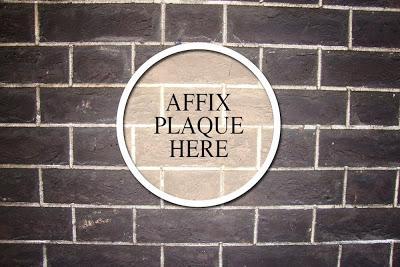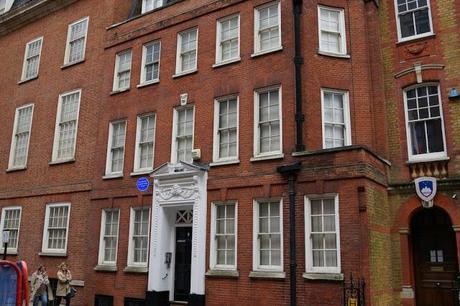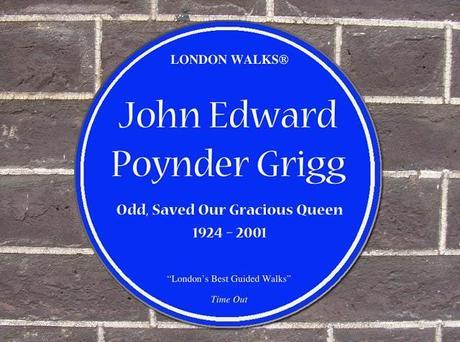 We all know and love London’s plaques – blue or otherwise. They pop up on our London Walks like cultural buttons waiting to be pressed by our London Walks guides.
We all know and love London’s plaques – blue or otherwise. They pop up on our London Walks like cultural buttons waiting to be pressed by our London Walks guides.
Regular Daily Constitutionalists will know that we have already rounded up 100 of ‘em for our Plaque of the Week series (search “Plaque of the Week” in the top left corner of this window).
London Walkers often ask about them. Why are some blue and some green? How do property owners feel about them? How can one “qualify” for a plaque?
Our mission in this, or occasional series, is to extend this conversation… by issuing our own plaques to those who have been left out. You may have a thing or two to say on such matters. As usual, get in touch via email or on Twitter @londonwalks.
Our next plaque where no plaque has gone before is in Westminster…

The monarchy. It’s the oldest surviving political institution in Europe.
Nearly 60 years ago an upper class rebel took it on.
He lost the battle.
But he won the war.
That upper class rebel was born in this house. Just round the corner from Westminster Abbey. And just over the way from Parliament.
His name was John Edward Poynder Grigg, second Baron Altrincham.
So, yes, he was a Lord. The pedigree’s impeccable: Eton, officer in the Grenadier Guards (he fought in the Battle of the Bulge),New College Oxford, House of Lords (courtesy of his father’s dying, yes, it was a hereditary peerage).
A Lord for a time. He didn’t want the peerage. Didn’t want to sit in the House of Lords. Disapproved of a hereditary House of Lords on principle. And, prayers answered, he was able to get rid of the ermine when the Peerage Act passed in 1963.
He became a commoner again.
Now to that battle.The second Baron Altrincham was a journalist. Well, Editor. Of a rag called the National and English Review. In 1957 he tossed a grenade at “the oldest surviving political institution in Europe” – a grenade in the shape of a National and English Review article that was extremely critical of young Queen Elizabeth, her entourage, the hidebound ways of the monarchy, its manners, etc.
He called the Queen’s speaking style “a pain in the neck.” He said her public manner was that of “a priggish schoolgirl.” He deploredpresentation at court , calling it “a grotesque survival.” He described the Queen’s entourage as “almost without exception people of the ‘tweedy’ sort” who were completely out of touch with ordinary people and the nation in general. Bottom line: he said the institution had to change its ways, had to adapt.
Yeah, a grenade. All the more shocking because it had been lobbed over the castle wall by a Life Guard and a peer!
It was a scandal. The second baron was toast. The press mauled him. The Archbishop of Canterbury had a go at him. He was even attacked in the street.
Ramrod straight, the former Life Guard stood his ground. He said he’d published the article in the interests of serving the monarchy, said he wanted “to strengthen it and enable it to survive [since] it is too precious an institution to be neglected. And I regard servile acceptance of its faults as a form of neglect.”
The British square that would not go down. But the onrushing hordes overran his position.
Lost the battle.
But won the war. Thirty years later Lord Charteris of Amisfield, for many years the Queen’s private secretary, confirmed that “the Lord Altrincham article…was the real watershed for the post-war monarchy.” He said “years later he had actually thanked the baron for the terrific service he had done.”
So, from “pain in the neck” speaking style and “priggish schoolgirl manner” to a granny (great-granny now) who rides shotgun in a chopper with James Bond and skydives into the Olympic stadium.
That journey started – the first shot in the war was fired – on April 15, 1924 when the future lord-and-then-unlord skydived into the world. When, in short, John Edward Poynder Grigg was born in this house.

A London Walk costs £9 – £7 concession. To join a London Walk, simply meet your guide at the designated tube station at the appointed time. Details of all London Walks can be found at www.walks.com.





